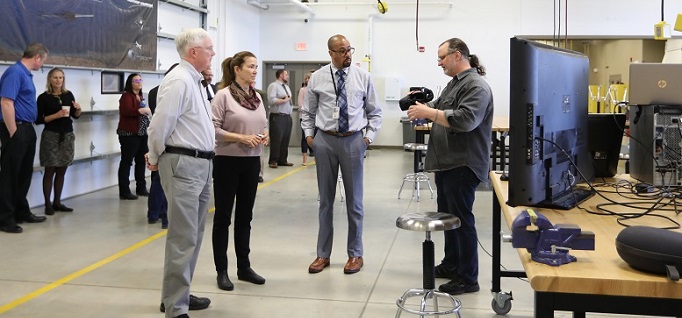Promoting autonomous technology education
By AACC 21st Century Center Staff
July 11, 2019
A Minnesota college’s new center will be an education hub for autonomous technology.
In another example of how community colleges adapt to meet changing industry needs, Minnesota’s Northland Community & Technical College, along with five other partner agencies, is going to focus on educating people about autonomous technologies.
What are autonomous technologies? According to a release from the college, autonomous technology is already woven into the fabric of everyday life, from autonomous guided agricultural equipment to household vacuums that can independently navigate the living room.
Using a $7 million National Science Foundation grant, Northland and partners will form the National Center for Autonomous Technologies (NCAT), which will be hosted on Northland’s aerospace site. The center will join the NSF’s large circle of Advanced Technological Education Centers (ATE). ATE is aimed at strengthening the skills of technicians.
Partners on the project are St. Cloud State University (SCSU), Marine Advanced Technology Education Inspiration for Innovation, Center for Advanced Automotive Technology, National Geospatial Technology Center of Excellence and the Minnesota State Transportation Center of Excellence (TCOE).
“Advanced vehicle technology is here. The NCAT will create the infrastructure to develop skilled technicians who will build the workforce of today and tomorrow to meet industry demands,” Christopher Hadfield, TCOE director, said in a release. “In two years, 60 percent of all new vehicles will have autonomous technology components.”
The NCAT will focus on air, land and sea autonomous technologies: unmanned aircraft systems, connected automated vehicles and unmanned underwater vehicles. The mission is “to educate the educators, to promote student involvement, engage the workforce and community, and to act as an education hub for autonomous technology across the country,” said Curtis Zoller, Northland associate dean of aerospace and agriculture.
This will be done through professional development workshops for educators and industry professionals. The center also will provide support to encourage more engagement in STEM and autonomous technologies at both the secondary and post-secondary education levels – particularly among underserved populations.
“Northland has driven innovation in autonomous technology education for almost a decade,” states Beck, “Autonomous technologies will transform the way society lives, works, and travels. The NCAT will provide significant advancements in technical education required to sustain the United States as a leader in autonomous technologies.”



